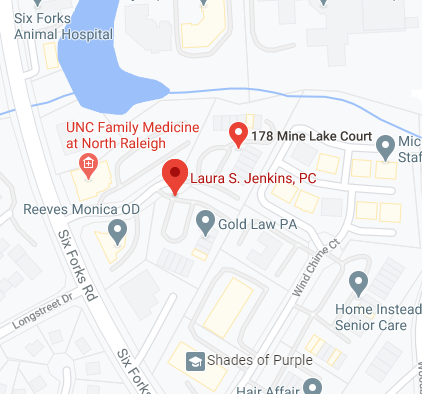If you’re injured at your place of work in North Carolina, or if you become ill due to conditions at your job, you will probably be eligible to obtain workers’ compensation benefits, and you will need to have the advice and services of a Raleigh workers’ compensation attorney.
You’re about to read a short introduction to workers’ compensation in North Carolina. You will learn what to do if you’re injured at work and how long it will take to receive your benefits. You will also learn what steps to take if your claim for workers’ comp benefits is denied.
Should you sustain a job-related injury in or near the greater Raleigh area, do not wait. You should immediately schedule a meeting to discuss your workers’ compensation rights with a Raleigh workplace injury attorney.
Who Qualifies for Workers’ Comp Benefits?
In this state, workers’ compensation is a no-fault insurance program regulated by the North Carolina Industrial Commission (NCIC). Employers purchase coverage for employees or they can be self-insured. When an employee suffers a work-related injury, he or she may file a claim for workers’ comp benefits.
Workers’ compensation protects employers from the personal injury lawsuits that would otherwise be brought by employees. It also allows injured workers to receive the compensation they need without having to file a lawsuit or having to prove that an employer was negligent.


With several very narrow exceptions, North Carolina requires every business with three or more employees to carry workers’ compensation insurance or to qualify as a self-insured employer for purposes of paying workers’ comp benefits.
What Does Workers’ Compensation Provide?
It doesn’t matter what your job is – anyone can be injured on-the-job. In North Carolina, if your employer carries workers’ compensation insurance and you are injured in an accident on the job or because of your job, you are entitled to workers’ comp benefits. Those benefits include:
- compensation for all medical expenses arising from your job-related injury
- the replacement of two-thirds of your wages while you can’t work
- other benefits depending on the exact details and the extent of your injury
Any medical treatment that you obtain on your own may not be covered by your employer’s workers’ compensation insurance, so before an on-the-job accident happens – and before there’s a medical emergency – it’s essential to understand your coverage.
What is the Timeline for a Workers’ Comp Claim?
If you sustain a job-related injury, you need to seek medical attention immediately, notify your manager or supervisor at once, and follow your employer’s procedures for filing a workers’ comp claim. You have thirty days to inform your employer and two years to submit your claim.
Do not wait that long. Notify your employer immediately, and then file your claim – with the advice and guidance of a North Carolina workers’ compensation attorney – as quickly as possible. If you are unable to work, you need to begin receiving benefits at once.


To file your claim, you will complete NCIC Form 18. Consult with your attorney to ensure that the form is accurate and complete, so that no mistakes or misunderstandings on your end cause your workers’ comp benefits to be delayed or your claim to be rejected.
Within fourteen days of notifying your employer that you have sustained a job-related injury, your employer or employer’s insurance company must accept or reject your workers’ comp claim. You will receive NCIC Form 60 if your workers’ compensation claim is accepted.
For What Reasons Are Workers’ Comp Claims Denied?
Your workers’ comp claim could be rejected for a trifling reason that’s easy to fix – like failing to file your NCIC Form 18 properly. Claims may also be rejected for more substantial reasons such as:
- Your employer doesn’t believe that your injury was job-related.
- Your employer believes that your injury was actually a pre-existing condition.
- Your employer believes that you are exaggerating – or that you were not injured at all.
- You failed to meet the thirty-day or two-year deadlines (mentioned above).
- Your medical treatment was not provided by an approved medical provider.
- You failed to seek medical treatment immediately after being injured.
- Your injury was linked to intoxication, fighting, criminal activity, or “horseplay.”
Should you receive NCIC Form 61, it means that your claim has been denied. Should you receive NCIC Form 63, it may mean that the insurance company is reserving its right to deny your workers’ comp claim.


If your claim is denied, you and your attorney may request a hearing before the NCIC to resolve the dispute by completing NCIC Form 33 (“Request That Claim Be Assigned for Hearing”). The form is filed with the NCIC, and a copy is provided to your employer’s insurance company.
When Will You Receive Your First Benefit Payment?
If your claim is accepted, your employer or their insurance company must pay the cost of all treatment necessary to effect a cure or limit the period of disability, along with two-thirds of your average weekly wage. Temporary wage replacement benefits are paid for up to 500 weeks or until you are able to return to work.
Note that you do not get paid for your first seven days away from work unless and until you miss all or part of twenty-one days of work. You should receive your first temporary total disability (TTD) benefit payment sometime after twenty-one days following the date you informed your employer about your injury.


If an employee is injured on-the-job and returns to work but cannot earn what he or she earned before the injury, the employee is entitled to temporary partial disability (TPD) benefits. If you’re totally disabled and you can never return to work, you may receive permanent and total disability benefits.
What Will a Workers’ Comp Lawyer Do on Your Behalf?
But even if you’ve filed your claim properly and you’ve met the deadlines, issues and obstacles may arise. That is why you need the advice and guidance of a Raleigh workers’ compensation attorney as early as possible – from the very beginning of the workers’ compensation process.
If your employer’s insurance company appears to be stalling or otherwise mishandling your workers’ comp claim, for example, let your attorney handle the matter. It’s best if you do not communicate directly with the insurance company.
Every on-the-job injury is unique. Every employee’s circumstances are different. That’s why, if you’re injured at work or because of your work, you’ll need personalized advice and step-by-step guidance from the right Raleigh workplace injury attorney.







